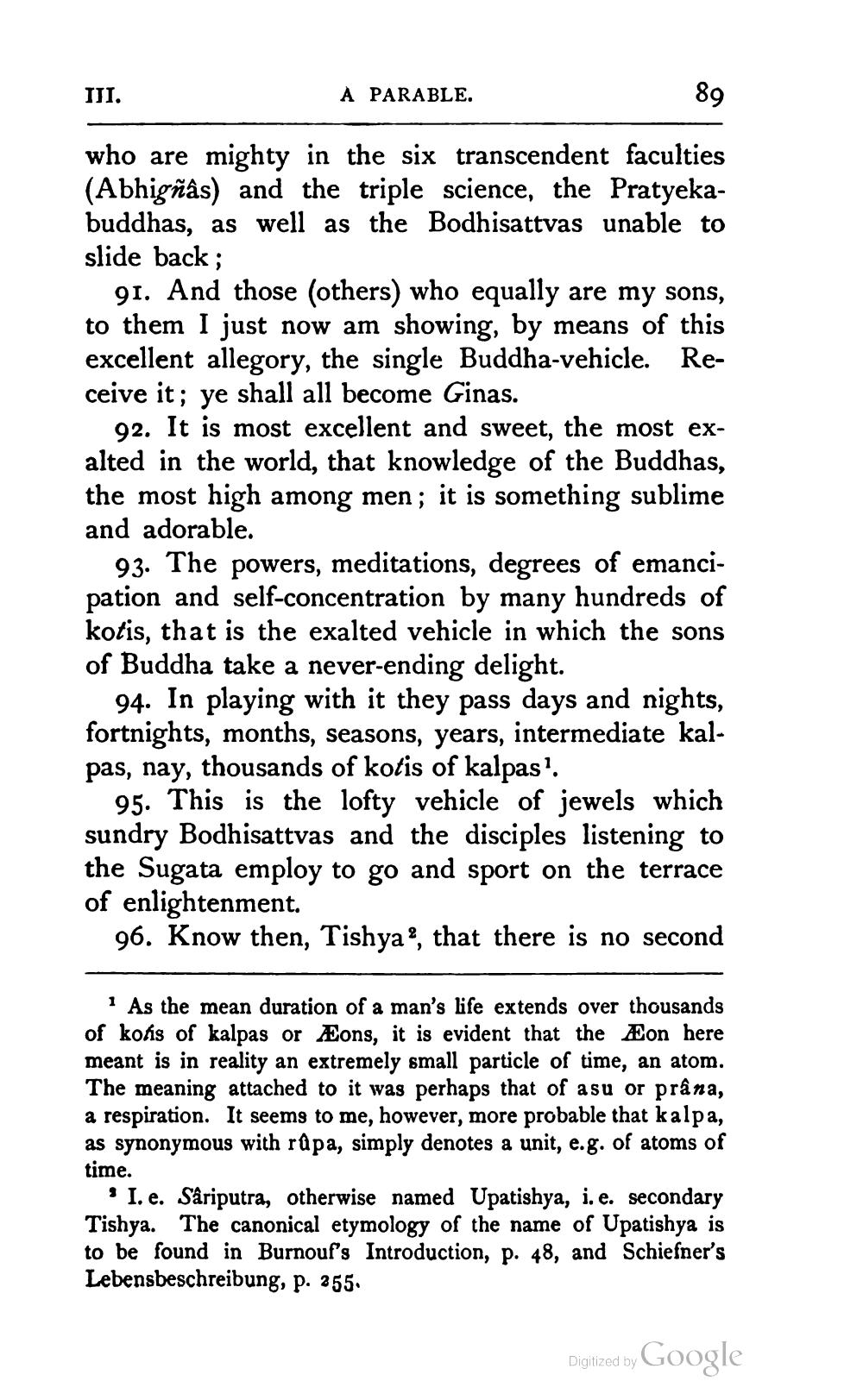________________
IJI.
A PARABLE.
who are mighty in the six transcendent faculties (Abhigñas) and the triple science, the Pratyekabuddhas, as well as the Bodhisattvas unable to slide back;
91. And those (others) who equally are my sons, to them I just now am showing, by means of this excellent allegory, the single Buddha-vehicle. Receive it; ye shall all become Ginas.
92. It is most excellent and sweet, the most exalted in the world, that knowledge of the Buddhas, the most high among men; it is something sublime and adorable.
93. The powers, meditations, degrees of emancipation and self-concentration by many hundreds of kotis, that is the exalted vehicle in which the sons of Buddha take a never-ending delight.
94. In playing with it they pass days and nights, fortnights, months, seasons, years, intermediate kalpas, nay, thousands of kotis of kalpas.
95. This is the lofty vehicle of jewels which sundry Bodhisattvas and the disciples listening to the Sugata employ to go and sport on the terrace of enlightenment.
96. Know then, Tishya”, that there is no second
As the mean duration of a man's life extends over thousands of kors of kalpas or Æons, it is evident that the Æon here meant is in reality an extremely small particle of time, an atom. The meaning attached to it was perhaps that of asu or prâna, a respiration. It seems to me, however, more probable that kalpa, as synonymous with rûpa, simply denotes a unit, e.g. of atoms of time.
' I. e. Sâriputra, otherwise named Upatishya, i.e. secondary Tishya. The canonical etymology of the name of Upatishya is to be found in Burnouf's Introduction, p. 48, and Schiefner's Lebensbeschreibung, p. 255.
Digitized by Google




